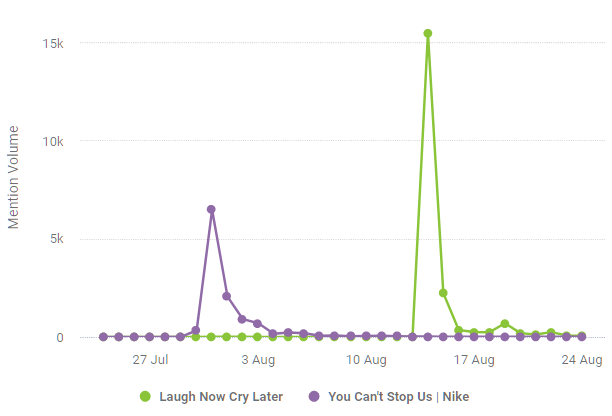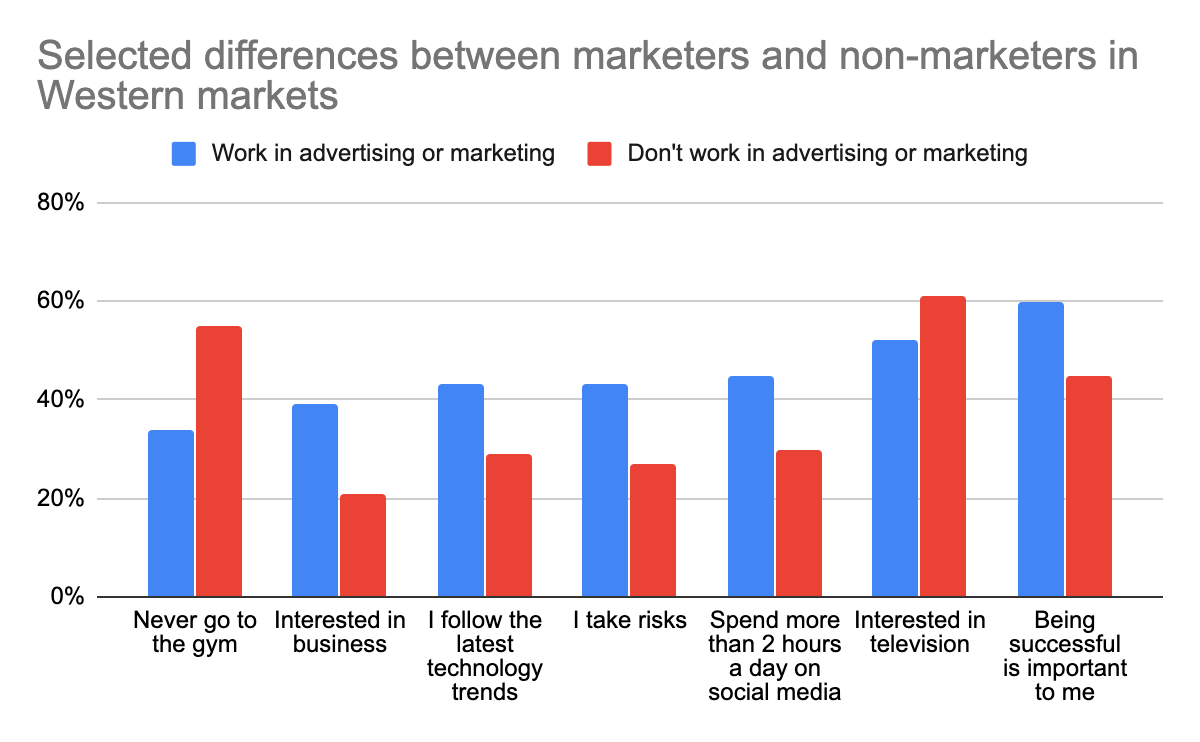Why is there such a gulf between what our industry loves and what the general public love? Why do we so often ignore the work that means most to our audiences? BBH’s Jacob Wright analyses our unhealthy obsession with “inspiration”.

In the last 30 days, Nike have released two very successful pieces of online marketing. One has been widely written about in the marketing press, posted on LinkedIn and pontificated about by the industry. The other has been completely ignored.
The strange thing is that the one that has been ignored is seemingly the product of a multi-million-dollar deal, has an equal amount of views, romances the product far more and seems to have a more genuine online buzz around it.
Yet the experts aren’t talking about it.
I’d suggest that this is due to a distortion of reality within client marketing teams and agencies alike. Bubbles and echo chambers have been much in the news of late, but recent work by Orlando Wood (“Lemon”) and Harry Guild (“Group Cohesion”) has shown that however much of a monocultural echo chamber a generation or a political disposition might be, the marketing industry is far more uniform than either, and in many ways totally different from the “average person”.
The campaign that has been widely discussed is, of course, the beautifully edited “You can’t stop us” film, narrated by Megan Rapinoe and designed to be a feelgood, inspirational piece to cheer the hearts of the world as we suffer under COVID-19.
On release, it shot up to 13m views on Youtube after two days and grew rapidly over the course of about 10 days before slowing down as the buzz faded. It is now receiving 100,000 or fewer new views per day. Commentators praised the editing craft but also the themes of tolerance, diversity and the intention to inspire with the power of sport.
The one that has not been discussed at all is the product of Nike’s rumoured US$430m deal with one of the most significant musicians of the last 20 years, Drake.
It’s a video for a new Drake song, and the entire video is set at Nike’s main campus in Portland. Champagne Papi pulls up to the campus at midnight to train and horse around with a variety of big-name Nike stars. He even hangs out in the Nike store. Throughout, everyone wears Nike product and makes it look great, and in fact, the entire video feels like a celebration of the brand – its products, its scale, its athletes, its place in culture. It’s also a great song – vintage Drake in its combination of emotive melody, humour and vulnerability.
Despite being released two weeks after the Nike ad, it has already matched it for views (about 60m but rising fast). And, given that several of Drake’s songs have previously hit over 1bn views, I would bet good money that by the end of the year its scale will dwarf that of “You can’t stop us”. The social-media savvy among you will also note that the engagement rate crushes the Nike ad, with 20x more people liking and commenting on the Drake video.
To understand more of the difference in scale of the actual audience’s interest in these two pieces of work, it’s quite instructive to look at the social listening and Google search data…


These two videos illustrate the gulf between marketers and the general population. While there is a place for topical, inspirational marketing that deals with societal issues, the marketing profession tends to hugely overemphasise its importance. Ordinary people don’t usually want or need brands to “inspire” them. Indeed, the desire to inspire and say important things might be far more to do with the egos of marketers and agency folk than it is to do with what consumers actually want.
Most viewers of “Laugh now cry later” seem to love it, and to respect the brand’s place in it, despite there being no “message” and no “inspiration” other than the joy of nice performances and unexpected cameos strung together by a good song. Nike doesn’t need issues to make itself interesting – it is already interesting, it just takes the right kind of artistry to celebrate that in a way that people enjoy.
The brilliant 2019 paper “The Empathy Delusion” by Reach51 discusses a survey of 2,000 marketing professionals which compares them with the general UK population and finds key differences which perfectly illustrate why marketers love “Can’t stop us” and are indifferent to “Laugh now cry later”. They showed that marketers have far less empathy for those who are different to them than the general population and that marketers systematically downgrade the importance of simple materialism, fun and “fitting in” versus more abstract moral principles such as “tolerance” – i.e. the exact values that “Can’t stop us” espouses.
Now, this is not to say that people don’t care about these issues or that this wasn’t a great campaign. But it is likely that the industry over-emphasises this kind of work because it flatters marketers – it says we are engaged in the big issues of the day and making a difference to the world. But as is ever the way, unless you are Kanye West, ego probably gets in the way of good work. A more honest appraisal of what we are really doing and what our audience really wants might not hurt.
When the name of the game is attention, if everyone in marketing is doing one thing, there is a great advantage to be gained from going the other way. And as we are (hopefully) all undergoing unconscious bias training right now, it would perhaps be a good idea to apply that to the profession as a whole. What is the unconscious bias of the marketing industry and how can we fight against it?
The first step is of course awareness. Luckily we have access to that information – by looking at GWI data we can see exactly what interests and values marketers are less likely to have than the general population, and therefore exactly where it would be smart to focus in our work.

Generally speaking, ordinary folks are just much more chilled out than marketers. They are far less preoccupied with their careers, their personal fitness, keeping up with technology and looking at social media. They look for good deals and use coupons and loyalty programs, but they are less likely to consult “expert opinion” before a purchase. They are much more interested in books and literature than they are in business. They are unashamed about their love of television. In fact, they just love to be entertained.
Perhaps in 2021 we can all try to practice empathy more and preach it a little less by talking more to some of these concerns and less about our own.
This article was originally published on BBH Labs and republished with the agency’s kind permission.

